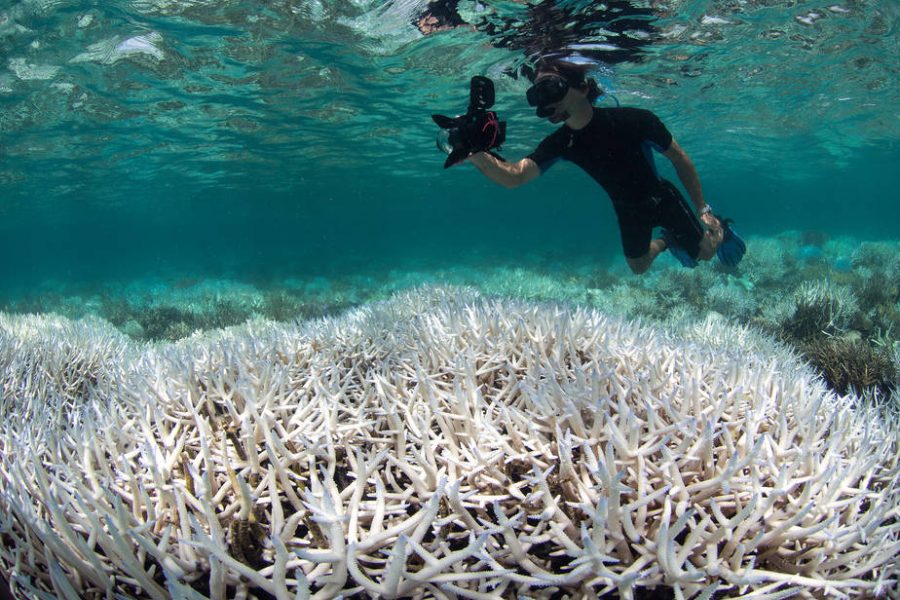The Great Barrier Reef and Coral Bleaching
May 8, 2020
The Great Barrier Reef is one of the earth’s most spectacular creations, full of vibrant coral reefs and millions of colorful fish, constituting the most biodiverse region on the whole planet. Regardless, ever since 1998, the Great Barrier Reef has been experiencing mass coral bleaching, destroying the vivid environment known and loved by man. Coral bleaching occurs when the coral loses its bright colors and turns white as a result of the microscopic algae zooxanthellae leaving the surface of the reef. The coral and the algae traditionally endure a mutually beneficial relationship in which they exchange nutrients ensuring both species’ survival in nutrient-poor waters. This relationship can be demolished for a variety of reasons, but the most prevalent factor is extreme heat killing off the bacteria, ensuring the soon destruction of the coral soon thereafter.
Since 1998 global warming has generated an increase in ocean temperatures by 3.6-5.4 degrees Fahrenheit throughout the Great Barrier Reef. Although this increase may seem insignificant, if a human’s internal body temperature were to be increased by 5.4 degrees Fahrenheit, they would be 104 degrees Fahrenheit, which in many scenarios can be fatal as brain damage can commonly occur. Just like humans, neither the coral nor the zooxanthellae can survive in waters in such extreme temperatures, resulting in extreme coral bleaching and the death of many species. Coral is at the bottom of the food chain, yet it has a significant impression on thousands of other species living in coral reef ecosystems. Other than the zooxanthellae, other bacteria feed off nutrients found on coral, species hide in coral to escape predators, and others use reefs as breeding grounds. As coral reefs are destroyed other species such as sea turtles, sea birds, starfish, jellyfish, shrimp, and others can become endangered or eventually extinct.
According to the U.S. National Oceanic and Atmospheric Administration Coral Reef Watch scientist William Skirving, the bleaching has spread to a dangerous extent, “At the moment, it’s definitely the most extensive bleaching event we’ve ever had,” (abcnews.com). Many scientists predict that the bleaching issue will only get worse, as global warming is showing no signs of slowing. Withal, it is not too late to do something, although the bleaching is extensive the coral can survive while bleached for a limited amount of time, therefore, ordinary civilians must take action to protect the reefs. By simply driving the car less, using renewable energy sources, or even simply reducing hairspray usage the results can be astonishing. It is crucial to save the reefs not only to preserve the most biodiverse biome on the planet but because the reefs impact human interaction greatly. The reefs diminishing will only add to the overfishing crisis, put shore communities in danger since coral weakens powerful waves from wearing away the coastline, and puts tourism-dependent businesses in economic danger of shutting down. The planet depends on you to restore the damage formulated by human activity, so help the cause and protect our reefs before they are gone for good.
